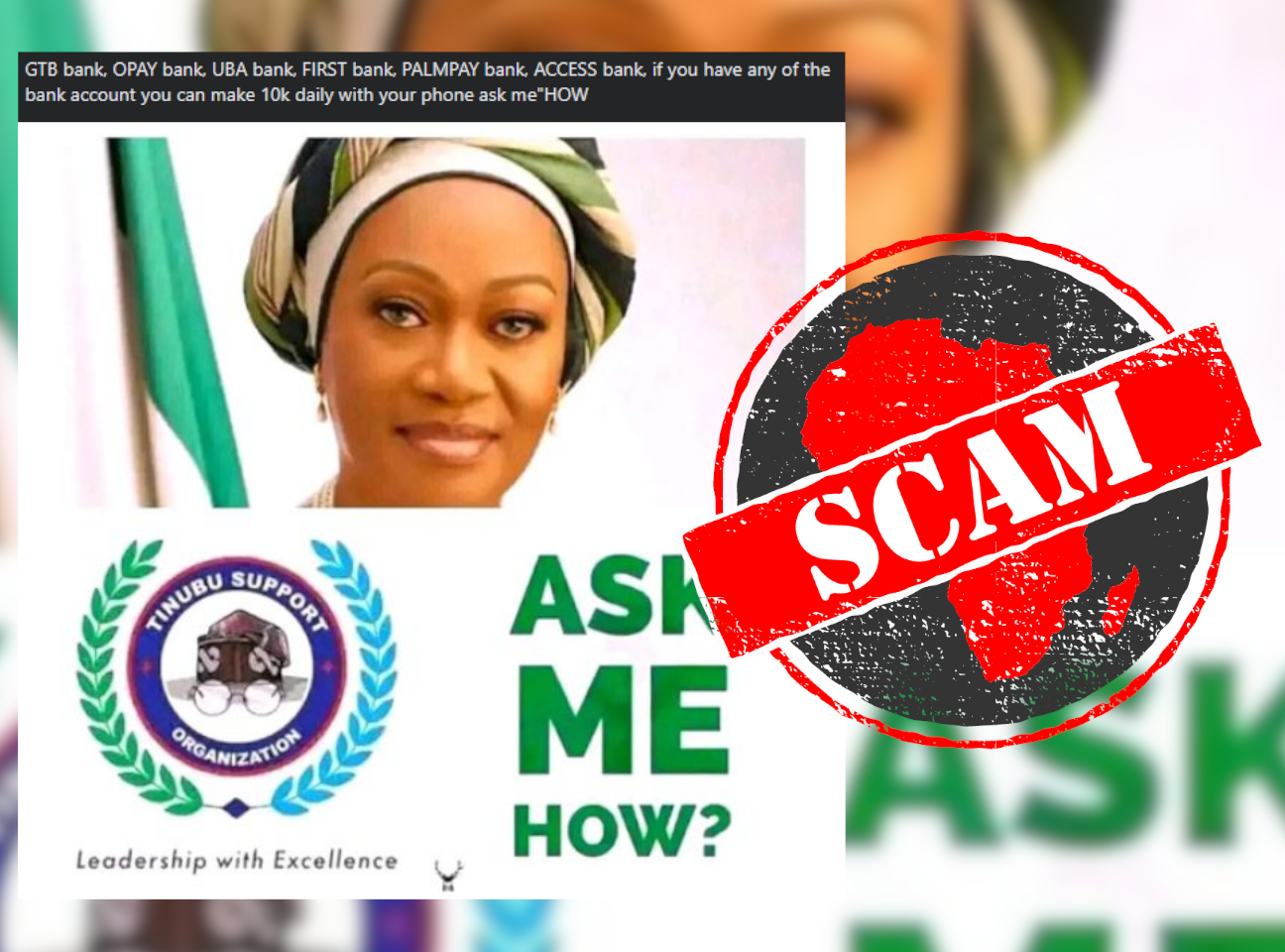IN SHORT: Certain Facebook posts claiming to render investment advice use images of Nigeria’s first lady, public figures and Nollywood actors. But beware of the scam.
Several posts on Facebook have been using images of Nigeria’s first lady Remi Tinubu, Nollywood actor Jide Kosoko, senator Ned Nwoko and other public figures, claiming to give investment advice.
One of the posts read: “GTB bank, OPAY bank, UBA bank, FIRST bank, PALMPAY bank, ACCESS bank. If you have any of the bank accounts, you can make 10k daily with your phone ask me ‘HOW’.”
Nollywood movie producer Ruth Kadiri and actor Regina Daniels have also had their photos featured here and here.
Photos of Nigerian celebrities such Mr Funny, Funke Akindele, Twinz Love, Fathia Balogun have also been used to push the same investment advice.
We also found the same posts here, here, here, here, here, here, here, here and here.
But are the celebrities behind these posts and any of this advice? We checked.

Typical signs of dubious investment schemes
The images used in all the posts were all low quality. We also searched the social media accounts of all the celebrities we had seen pictured and found no similar posts. These are indications that we are dealing with a scam.
We then clicked on a link in the comment section of a post and it led to a WhatsApp.
We sent a message expressing interest in the trading platform, which was claiming to offer double returns on investment within 45 minutes. But the platform being impersonated, OctaFX, doesn't permit double investment or withdrawals in under an hour, although it does provide a 50% bonus on every deposit made. The conversations further had with the contact indicated that it was a scam.
Africa Check has debunked similar claims where fake investment schemes use the photos of celebrities and public figures to mislead the public.
Fake online investment schemes promising unrealistically high returns are common in Nigeria. Read our guide on how to spot them.
Republish our content for free
For publishers: what to do if your post is rated false
A fact-checker has rated your Facebook or Instagram post as “false”, “altered”, “partly false” or “missing context”. This could have serious consequences. What do you do?
Click on our guide for the steps you should follow.
Publishers guideAfrica Check teams up with Facebook
Africa Check is a partner in Meta's third-party fact-checking programme to help stop the spread of false information on social media.
The content we rate as “false” will be downgraded on Facebook and Instagram. This means fewer people will see it.
You can also help identify false information on Facebook. This guide explains how.




Add new comment